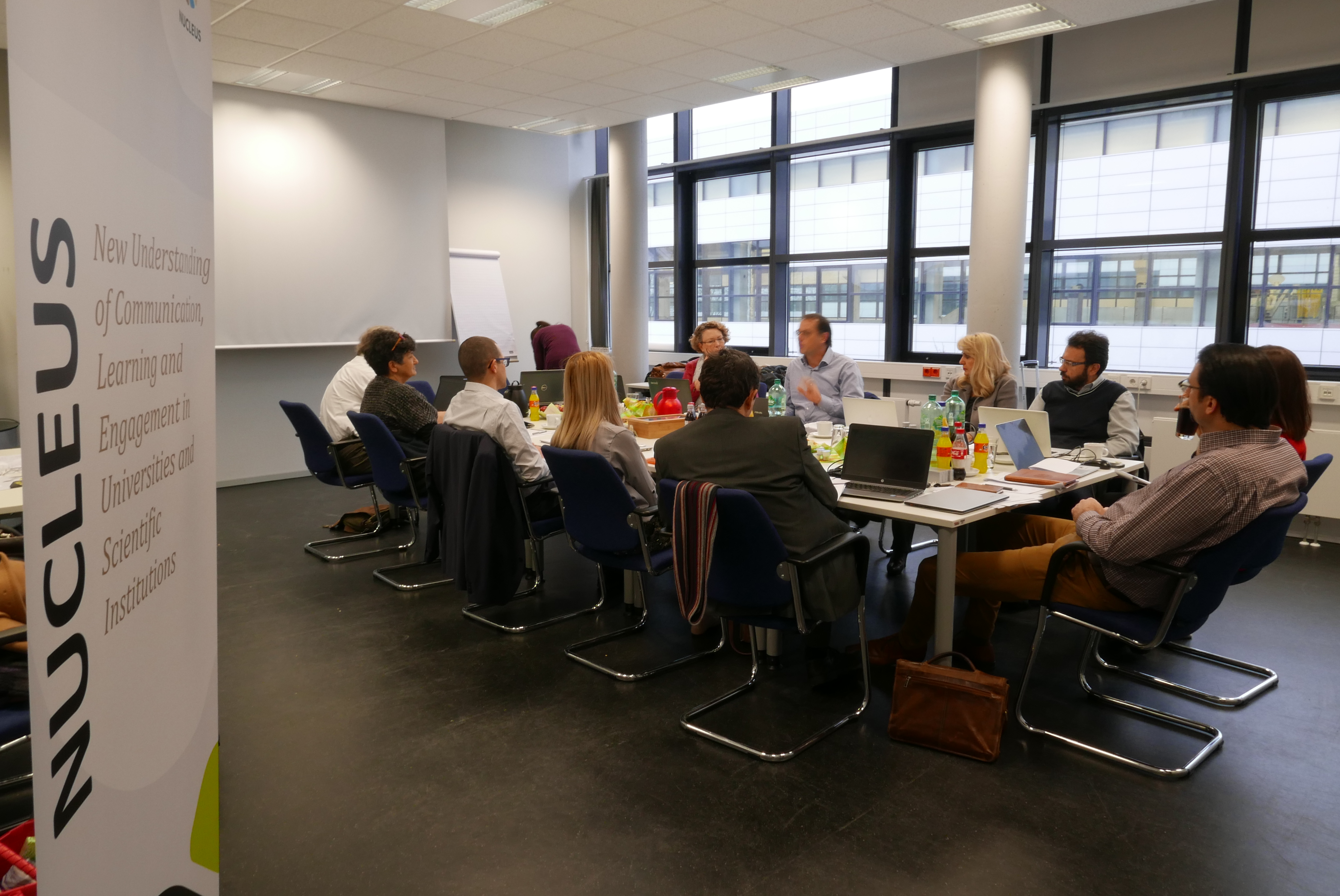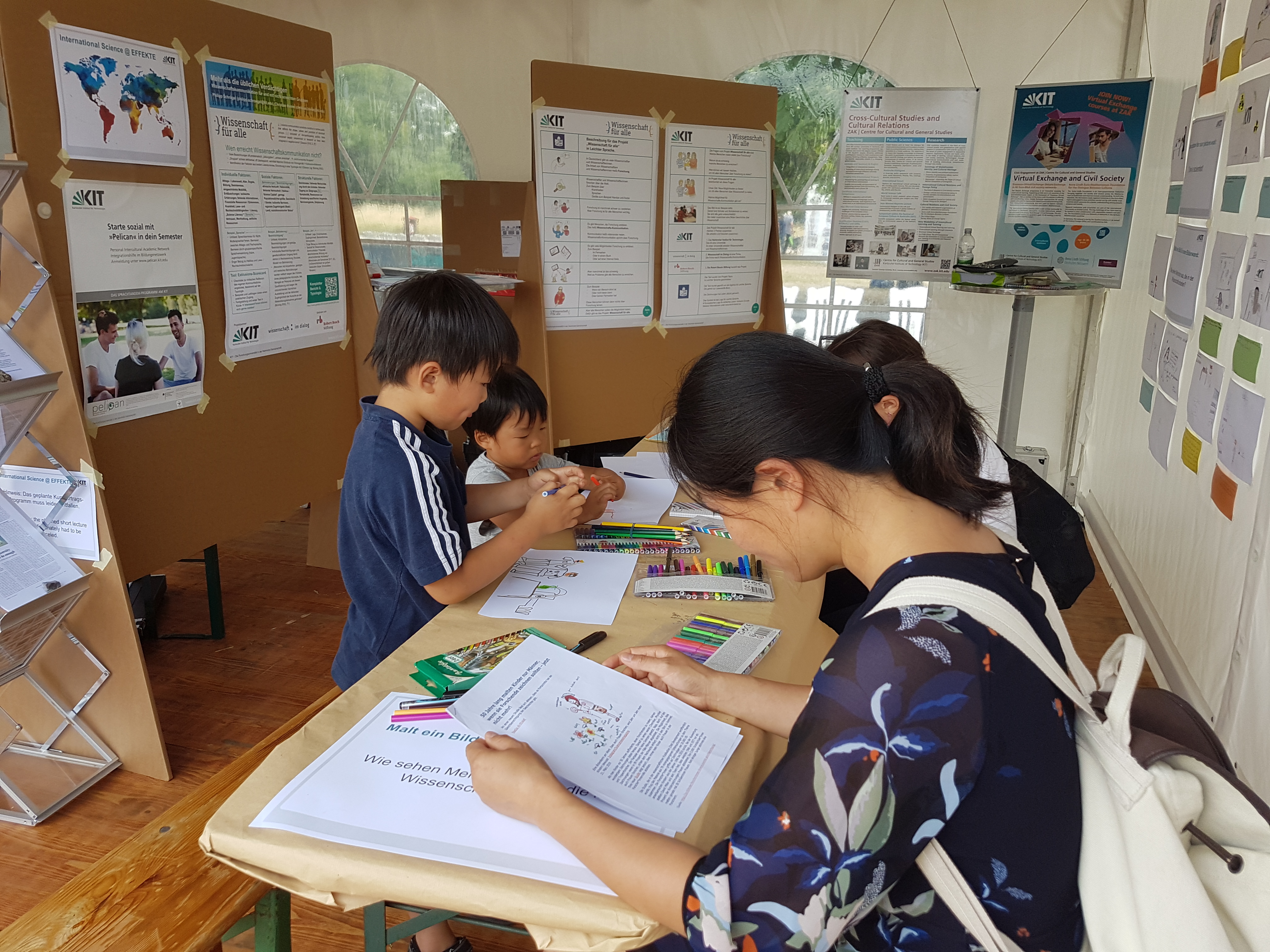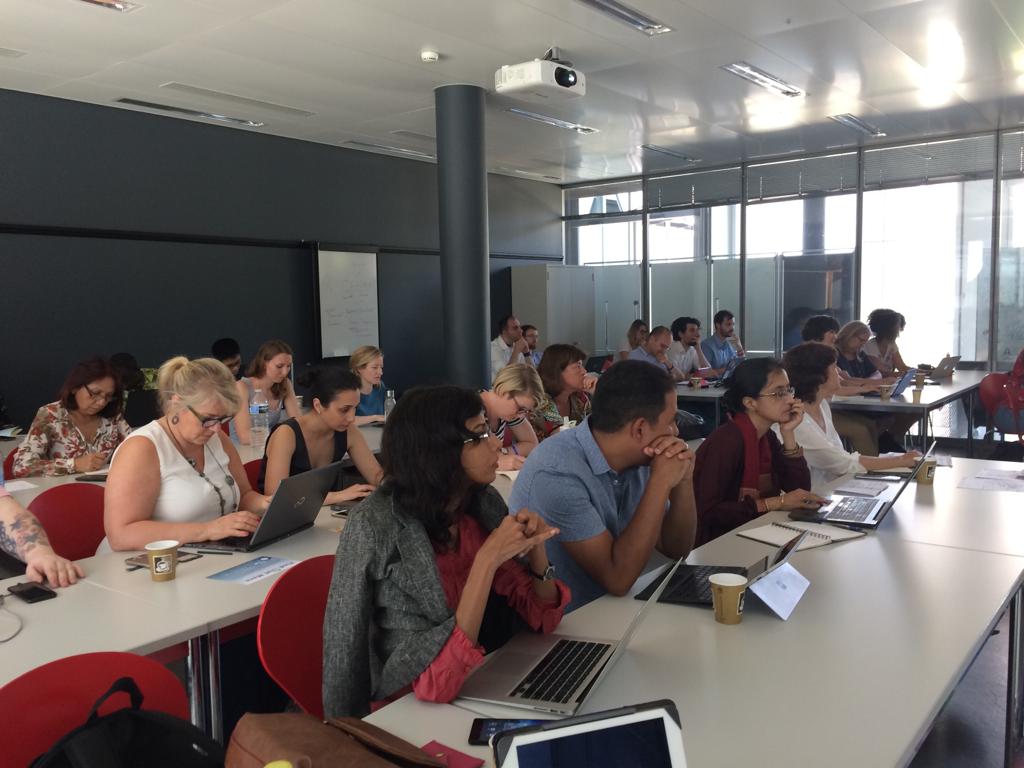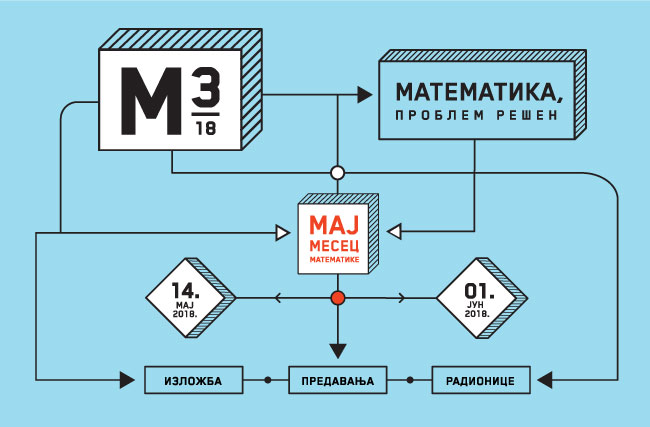
Ambition, diversity of perspectives, and depth of thinking were the project strengths singled out by the NUCLEUS Advisory Committee at their first meeting, held 31 January, 2017 at Rhine-Waal University in Kleve, Germany.
The Advisors discussed the project’s challenges, strategy and goals constructively and supportively with the Executive Board. Bringing perspectives from research, policy, industry and public engagement, the Advisors offered counsel based on their own first-hand experiences in science-society projects and initiatives.
Present for the first meeting were:
- Aleksandra Drecun, President of the Intersection science and innovation action tank (Serbia)
- Maya Halevy, Director of the Bloomfield Science Museum Jerusalem (Israel)
- Paul Manners, Director of the National Co-ordinating Centre for Public Engagement (UK) [joined by video]
- Daan Schuurbiers, Founding Director of the De Proeffabriek responsible innovation consultancy (the Netherlands)
- Gal Weiss, EU Programs and Contracts Manager for IBM Research (Ireland)
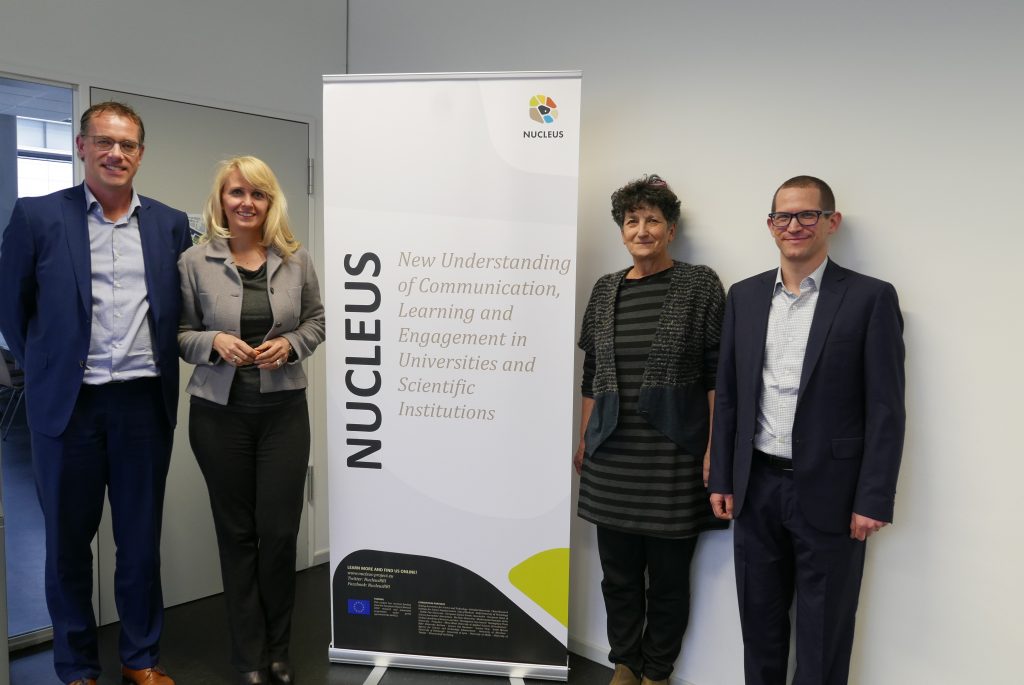
First meeting of the NUCLEUS Advisory Committee. From left to right: Daan Schuurbiers, Aleksandra Drecun, Maya Halevy and Gal Weiss (not pictured: Paul Manners, who joined by video)
The external perspectives come at an important time for NUCLEUS, as the project readies itself for the implementation stage. So what did the advisors think of the project progress and potential thus far?
Drecun emphasises the strength of the consortium’s diversity across mandates, organisational formats, geography and prior engagement with RRI. With this in mind, she says, “It is extremely important to support a continuous, proactive exchange of information and discussion among all project partners, thus making good use of such a representative group of people that could mirror real-life RRI multi-stakeholder practice itself.”
“The focus on understanding the meaning and interpretation of RRI in different cultural contexts is very distinctive,” adds Manners. “So much research is now being done in large international collaborations. There are different expectations and assumptions that researchers bring to these projects, and different framings of public engagement.”
The potential to integrate conceptual findings with practical outcomes is a highlight of the project for Schuurbiers. “At the conceptual level, NUCLEUS could contribute to a deeper understanding of RRI. On a more practical level, NUCLEUS could inform researchers and university leaders what it would mean to ‘do’ RRI,” he says. However, he also cautions against overambition: “Rather than trying to present all-encompassing solutions, less could well prove to be more.”
Other advisors who will join the committee, but were unable to attend the meeting, include:
- Mikkel Bohm, Director of Astra, the Danish STEM national education platform (Denmark)
- René von Schomberg, Team Leader of Science Policy for the European Commission (Belgium)
- Jack Stilgoe, Lecturer in Social Studies of Science at University College London (UK)
The long-term goal of NUCLEUS is to develop a set of practical recommendations for leaders of research institutions on how to implement RRI. The Advisory Committee’s experience and feedback will be valuable in strengthening the project’s progress and its policy outcomes.
“Many best practices were very active during previous projects’ lives but were not really embedded,” says Halevy. “A new approach is needed now: to analyse obstacles, identify opportunities, and develop tracks to adopt the results of the best practices.”
“The deep thinking, the desire of the people involved to have a better approach with both the ‘high level’ and the day-to-day practice of RRI, make it a wonderful opportunity for Europe,” said Weiss.
